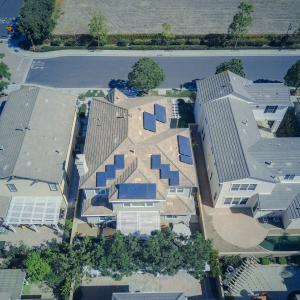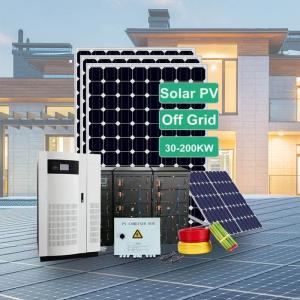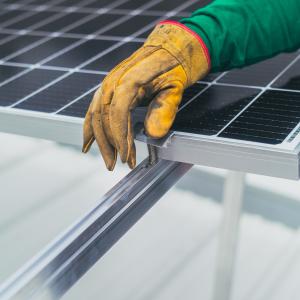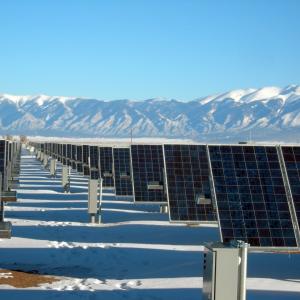What is monocrystalline solar panel?
Solar panels can be manufactured in many different ways and from a variety of different materials. Despite this difference, they all perform the same task of absorbing solar energy and converting it to electricity. The most common material for solar panel construction is silicon which has semiconducting properties.Most of the solar panels on the market today for residential solar energy systems can fit into three categories: monocrystalline solar panels, polycrystalline solar panels, and thin film solar panels. Each type of solar panel has different characteristics, thus making certain panels better suited for different situations.
Today, we will focus on the monocrystalline solar panels and look into its features and applications.
How do monocrystalline solar panels work?
When sunlight falls on the monocrystalline solar panel, the cells absorb the energy and through a complicated process create an electric field. This electric field comprises voltage and current and generates power which is governed by the equation P (power) = V (voltage) x I (current). This power can be used directly to power devices that run on direct current (DC). This power can also be converted to alternating current (AC) using an inverter.
Monocrystalline solar panels are generally thought of as a premium solar product. The main advantages of monocrystalline panels are higher efficiencies and sleeker aesthetics. To make solar cells for monocrystalline solar panels, silicon is formed into bars and cut into wafers. These types of panels are called “monocrystalline” to indicate that the silicon used is single-crystal silicon. Because the cell is composed of a single crystal, the electrons that generate a flow of electricity have more room to move. As a result, monocrystalline panels are more efficient than their polycrystalline counterparts.
The Pros and Cons of Monocrystalline Solar Panels
While they are the most efficient solar cell on the market, there are several advantages and disadvantages that come with monocrystalline solar panels, each of which is listed below.
※ Here are some of the advantages of monocrystalline solar cells:
1. They have the highest level of efficiency at 15-20%.
2. They require less space compared to other types due to their high efficiency.
3. Manufacturers state that this form of solar cell lasts the longest, with most giving them a 25-year warranty.
4. They perform better in low levels of sunlight, making them ideal for cloudy areas.
※ Here are some of the disadvantages to monocrystalline solar cells:
1. They are the most expensive solar cells on the market, and so not in everyone’s price range.
2. The performance levels tend to suffer from an increase in temperature. However, it is a small loss when compared to other forms of solar cell.
3. There is a lot of waste material when the silicon is cut during manufacture.
Applications
Because of their many advantages, monocrystalline solar panels find many applications that are as follows:
Being more efficient, these panels can produce more electricity for the same area as occupied by panels made of other materials. These panels are quite popular among solar rooftops in urban and rural areas. They are also high recommended for solar applications on a larger scale–on vast tracts of uncultivable land.
Smaller panels generating between 5 and 25W of electricity are useful for charging phones, cameras and laptops. Panels generating between 40 and 130W are useful for powering higher wattage appliances such as refrigerators and microwave ovens.
The monocrystalline solar panels are extremely useful in lighting up gardens. They can form an array and used to power rural homes. Besides, they are perfect for street lighting as stand-alone panels.
So far, monocrystalline solar panels are the most efficient modules and occupied the largest market share. However, other alternatives are challenging this technology. Let’s look forward to its development in the future.






